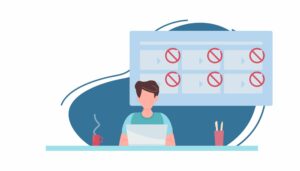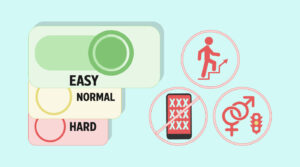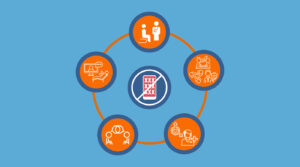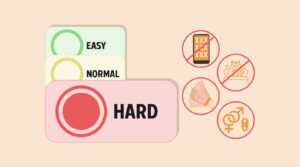Porn addiction is one of the most controversial, most damaging, and more powerful addictions there is. It’s characterized by intense, dopamine-driven cravings for PMO (as well as numerous other withdrawal symptoms).
Keep reading to learn what to expect when recovering from pornography addiction — and what to do about it.
What is pornography addiction?
Pornography addiction is, as you might expect, the state of being addicted, dependent, and/or ‘hooked’ on pornography. Most people with porn addiction are also addicted to the porn-masturbation-orgasm pathway, more commonly known as PMO.
Porn addiction may be carried out in the shadows, so to speak, but its aftereffects can easily trickle into every facet of your life. Porn addiction is known for its ability to damage mental health, physical health (especially sexual performance), and even spiritual health! It can damage your relationships and make you insensitive to your loved ones, too.
Other symptoms of porn addiction include:
- Sexual infidelity
- Random mood swings
- Uncontrollable porn use
- Compulsive porn viewing
- Boredom-driven porn use
- Unwanted lustful thoughts
- Extreme difficulty quitting porn
Is porn addiction different than sex addiction?
Porn addiction and sexual addiction are both similar and different. Think of them as two sides of the same coin. The hormonal/chemical causes of each type of addiction are very similar (both of them are almost like substance addiction/drug addiction in the ways they overstimulate dopamine). The recovery process from both addictions is quite similar, too.
Yet porn addiction and sex addiction vary in several key ways. For one, they tend to affect different demographics. Men who are 30-40+ may be more likely to suffer from full-blown sexual addiction, as they may have grown up without having internet porn available from an early age.
The symptoms of sex far transcend pornography use to include various real-life activities:
- Sex addiction
- Dependency on sex
- A dangerous sex life involving new partner after new partner
- Involvement with prostitutes, OnlyFans girls, e-girls, etc.
- Financially costly sexual activities
- Voyeurism
- Infidelity
A multifaceted approach to recovery works best when trying to combat either behavioral addiction. Men with porn addiction and/or sex addiction should make an effort to keep themselves accountable by joining support groups, abstaining from social media, and installing porn blocking software on their devices.
Another thing both addictions have in common? They often develop as coping mechanisms in times of stress — and stress, of course, is pretty inescapable in the modern age. It’s pretty telling that zoo chimpanzees masturbate while wild chimpanzees don’t.
Might porn and/or sexual addiction be ways to feel powerful…ways to momentarily drown out learned helplessness? That’s exactly what some sexual wellness experts think.
Yet another thing both addictions have in common? The best way to recover from them is by going cold turkey. No more porn, no more masturbation, no more edging, and no more sexual infidelity!
Even after you quit, though, you may be in for a rough couple of weeks. Here’s what to expect when you first decide to kick your porn addiction for good.
What are the most common porn addiction withdrawal symptoms?
We would be lying to you if we said recovering from porn addiction was easy. It’s estimated that 80+% of men with porn addiction experience withdrawal symptoms when they try to quit.
The many potential signs and side effects of withdrawal include:
- Cravings for viewing porn
- Feelings of depression and nihilism
- Lower overall well-being
- Withdrawal from friends and family members
- Anxiety and panic attacks
- Loss of libido
- Erratic sex drive
- Erectile dysfunction
It takes time for your brain’s neurochemicals to regain their former youthful levels, so be sure to stick with it. Abstaining from PMO gets much, much easier over time, particularly once you’ve made it past the first week. Addiction recovery is a process, so give yourself time to recover! As your brain’s reward system begins to rewire itself you’ll start to appreciate the little things in life again. Your self-esteem will be improved and you might just start taking more interest in self-care again.
We’ll close this article by looking at several ways to make the withdrawal process easier. If you’re going through it right now, consider trying:
- Cold showers
- cognitive behavioral therapy
- checking in with a close friend or support group
Best of luck and many blessings on your journey!
Table of Contents





